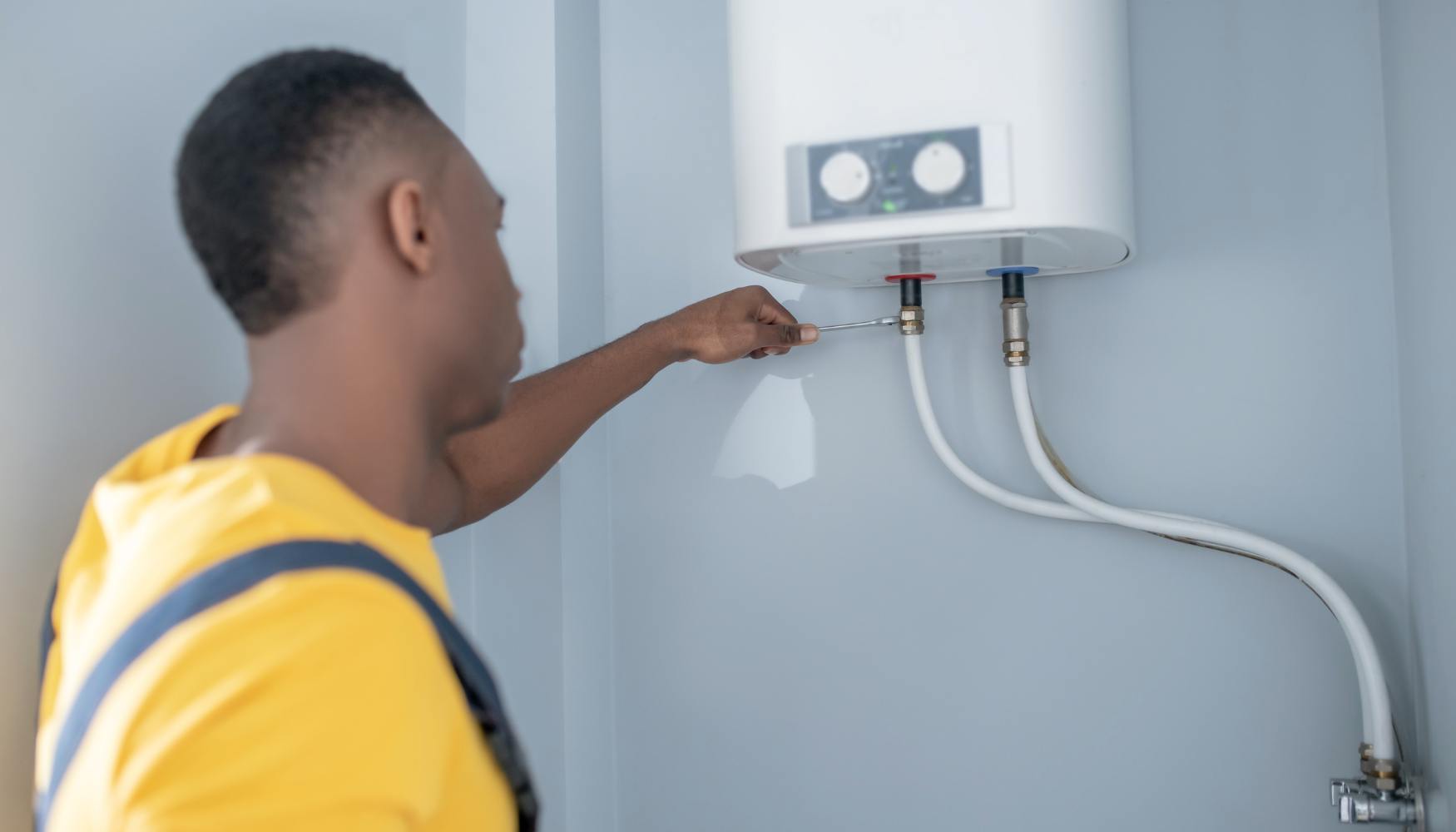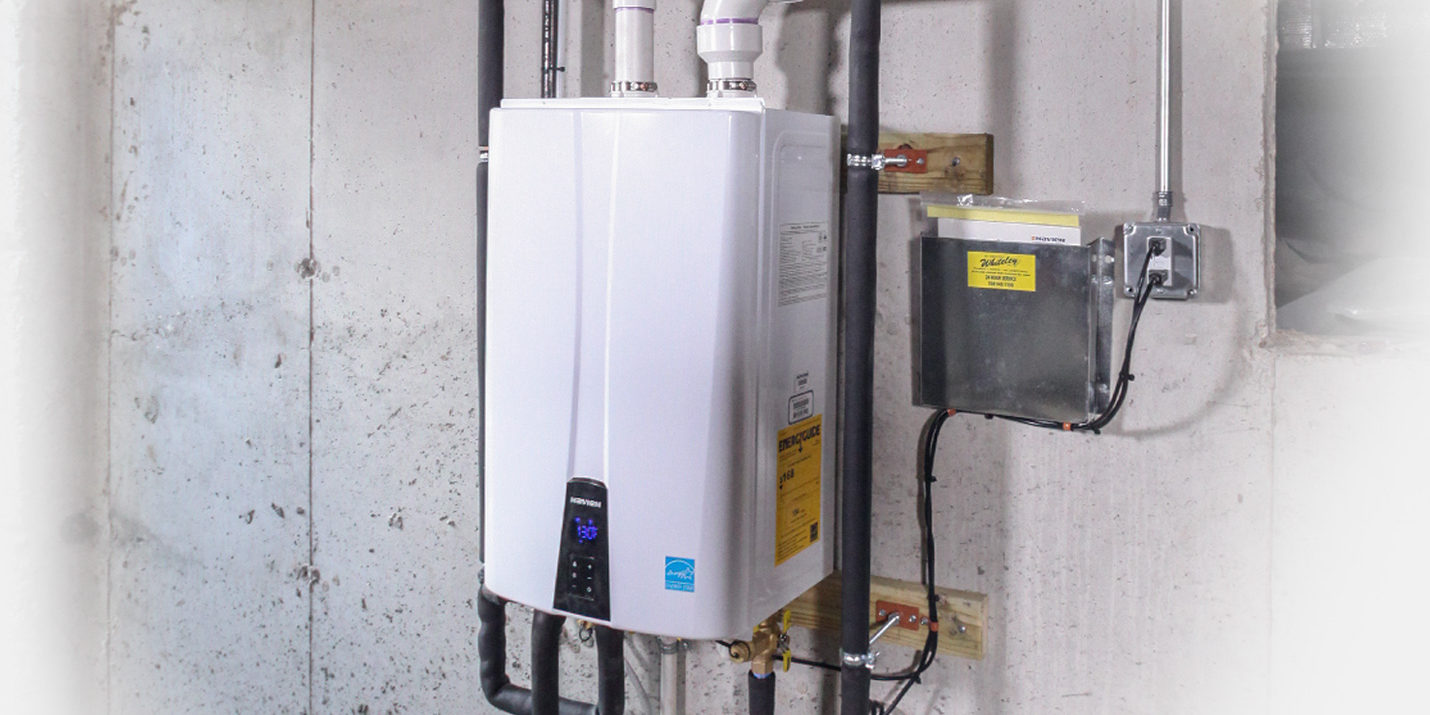When Tankless Water Heaters Improve A Home’s Benefits
When Tankless Water Heaters Improve A Home’s Benefits
Blog Article
Just how do you feel on the subject of 5 Benefits of Tankless Water Heaters?

In a world where comfort and performance preponderate, it's no surprise that property owners are continuously in search of smarter ways to manage their home's energy consumption and comfort. One innovation that has actually continuously obtained popularity is the tankless hot water heater. Yet exactly what makes these systems attract attention from the conventional tank-based designs the majority of us matured with? Let's dive in and check out the benefits of tankless water heaters, assisting you decide if it's time to make the switch in your home.
Intro
Image this: you step into the shower after a lengthy day, anticipating a comforting waterfall of hot water, just to be greeted by icy droplets due to the fact that the last individual utilized everything up. Audio familiar? Traditional hot water heater store a fixed quantity of warm water, meaning you go to the mercy of that storage tank's supply. Tankless systems, on the other hand, warmth water on demand. Say goodbye to running out mid-shower, say goodbye to fumbling with timetables simply to guarantee hot water is available.
Recognizing Tankless Hot Water Heater
What Are Tankless Hot Water Heater?
Tankless hot water heater, occasionally called on-demand or instantaneous hot water heater, supply hot water only as it's required. As opposed to keeping gallons of pre-heated water, these systems kick into activity the minute you turn on the faucet. Water passes through a warmth exchanger, warming up in real-time, implying you obtain a nonstop flow of hot water without the need for a huge storage tank sitting lazily by.
Just how Do They Vary from Traditional Systems?
Conventional heating units hold a tank of hot water, making use of power to keep that storage tank at a regular temperature. Tankless devices eliminate the standing supply, lowering thrown away power and the bulky footprint of a large cyndrical tube. Essentially, you're updating from a "stockpile" state of mind to a "made-to-order" strategy.
Usual Sorts Of Tankless Units
Tankless water heaters typically can be found in two ranges: gas and electrical. Gas designs often tend to deliver greater flow rates, suitable for larger households, while electrical versions usually offer smaller sized homes and are usually easier to set up. Additionally, some systems are created for point-of-use (serving one component) while others can manage the entire home's warm water requirements.
Key Benefits of Tankless Water Heaters
Energy Performance and Price Savings
Say goodbye to heating up a titan container's well worth of water and maintaining it toasty throughout the day. Tankless heating systems decrease standby power losses, which can decrease energy costs. While the first expense could be higher, the long-term cost savings frequently justify the investment.
3. Space-Saving Design
If your home is short on storage space, getting rid of the cumbersome storage tank frees up valuable room. Tankless systems are compact and can often be placed on walls, stashed in edges, or installed in limited energy closets without having all to oneself the whole space.
4. Longer Life-span
A well-maintained tankless hot water heater can outlive its tank-based relative. Traditional storage tanks could last 10-15 years, while tankless versions can maintain downing along for twenty years or more, making them a solid investment gradually.
1. Endless Hot Water Supply
Ever had to schedule showers so every person gets their reasonable share of warm water? With tankless, that ends up being a distant memory. As long as the heater's circulation capability isn't surpassed, you can take back-to-back showers without becoming a popsicle.
5. Improved Water Quality
Keeping water in a storage tank can occasionally bring about debris buildup or a somewhat "off" taste. With tankless systems, fresh water is warmed instantly, minimizing the possibilities of sediment accumulation and possibly using cleaner-tasting water.
Factors to consider Before Changing
Though the advantages are compelling, it's important to think about a couple of factors before totally dedicating.
Assessing Your Home's Water Use Patterns
If your household simultaneously uses several fixtures with high hot water need, make sure the unit's circulation rate meets your needs. Knowing your usage patterns helps you choose the ideal size and type of tankless heating system.
Maintenance and Treatment Tips
Tankless systems are relatively low upkeep, but they aren't set-it-and-forget-it appliances.
Regular Cleaning and Descaling
Tough water minerals can build up in the warm exchanger, influencing performance. Normal descaling (commonly recommended yearly) maintains the system running at peak performance.
Annual Professional Evaluations
A yearly checkup from an expert guarantees small issues are captured early. They'll examine the unit's efficiency, try to find leakages, and help maintain optimum effectiveness.
Preliminary Investment Costs
Tankless heaters normally include a greater in advance price tag. In between the device itself and possible installation alterations, the first price might give you sticker shock. However bear in mind to see it as a long-term financial investment.
Installation Requirements
Depending upon your home's facilities, you could require additional electrical capacity or gas line upgrades. Guarantee you recognize the installation demands and speak with an expert to stay clear of surprises.
Making Sure Proper Ventilation
For gas versions, proper air flow is important to securely remove exhaust gases. Make sure airing vent systems are tidy and correctly mounted to avoid any kind of potential safety and security dangers.
Comparing Different Brands and Designs
Not all tankless hot water heater are created equal.
Investigating Dependable Makers
Search for reliable brands with a background of generating high quality devices. A trustworthy supplier often gives much better consumer assistance and longer guarantees.
Installment: DIY or Professional?
While some home owners relish tackling tasks themselves, tankless installment could not be the most effective time to break out the toolbox.
Pros and Cons of DIY Installation
A DIY set up might conserve cash, however it includes risks. Wrong installation can lead to ineffectiveness or security issues. If you're handy and have experience, it might be practical-- however wage care.
Checking Out Evaluations and Individual Comments
Individual evaluations and responses from neighbors or friends that have actually gone tankless can use useful understandings. In some cases, real-life experiences can be more informing than advertising and marketing pamphlets.
When to Call an Expert Plumbing Professional
For many, calling a pro makes sure whatever's done properly. A professional plumber recognizes neighborhood codes, sizing needs, and airing vent parameters, reducing the risk of problems.
Making the most of Effectiveness
You have actually bought a tankless device-- now maximize its efficiency.
Ideal Temperature Level Setups
Many people establish their systems between 120-140 F. Changing the temperature can boost convenience and financial savings. Experiment to discover a sweet spot that does not lose power.
Pairing with Low-Flow Fixtures
Wish to extend your unit's capacities? Take into consideration setting up low-flow showerheads and faucets. They reduce water use, allowing your tankless system to supply a consistent stream of warm water without straining.
Ecological Effect
Tankless water heaters straighten with greener living goals.
Lowered Carbon Footprint
By utilizing less power and only home heating water as needed, tankless systems can decrease your home's carbon footprint, minimizing your ecological effect.
Preserving Natural Resources
Less energy intake and much less wasted warm water translate into fewer natural resources being used, an ecological win-win.
That Profits A Lot Of from Tankless Heating systems?
The appeal of tankless heating units is that they can suit a range of families.
Large Families vs. Single Residents
Huge family members might love the limitless hot water supply, while single owners value the energy savings from not heating up an entire storage tank for just a single person's early morning shower.
Property Owners with Restricted Space
If your home is short on square video, shedding the cumbersome container frees up area for various other essentials-- or perhaps just much more breathing space.
Eco-Conscious Customers
Going tankless aligns with eco-friendly worths, ensuring you're not squandering power or resources.
Future Trends in Tankless Water Heaters
The world of home devices is ever-evolving, and tankless hot water heater are no exemption.
Advancements in Modern technology
R&D is constantly improving warm exchangers, making systems more reliable and durable. Future versions might be also quieter, more small, and much better matched for varying environments.
Smart Home Assimilation
Picture adjusting your water heater's temperature level using an application or getting maintenance alerts on your phone. As smart home technology advances, we'll see more connection and comfort.
Verdict
Picking a tankless water heater is greater than just updating your home's hot water system; it's buying long-term comfort, power effectiveness, and a greener way of living. By considering your family's water use, bearing in mind installment requirements, and dedicating to regular maintenance, you can take pleasure in a constant stream of warm water without the baggage of a bulky tank. As innovation develops, you can anticipate even smarter, extra effective tankless options that not only make your life less complicated yet also profit the world.
Why You Should Consider a Tankless Water Heater for Your Home
Energy Efficiency and Cost Savings
Tankless water heaters, also known as on-demand water heaters, heat water only when needed. This means they don't waste energy keeping a tank of water hot constantly. This efficiency translates into substantial cost savings on your monthly energy bills.
Endless Hot Water Supply
One of the significant advantages of tankless water heaters is their ability to provide a continuous supply of hot water. Traditional tank water heaters have a limited capacity and can run out of hot water, especially during peak usage times. In contrast, tankless water heaters can provide an endless stream of hot water, making them ideal for larger families or homes with high water usage.
Space-Saving Design
Tankless water heaters are compact and take up significantly less space compared to traditional tank heaters. They can be installed on walls, under cabinets, or even outside, freeing up valuable space in your home. This makes tankless water heaters a great option for smaller homes or properties with limited space for a traditional water heater.
Longer Lifespan and Lower Maintenance
Tankless water heaters typically have a longer lifespan compared to traditional tank heaters. They can last up to 20 years or more with proper maintenance. Additionally, tankless systems are designed with replaceable parts, which can extend their lifespan further and reduce long-term maintenance costs.
Environmentally Friendly
Reducing energy consumption not only saves you money but also benefits the environment. Tankless water heaters contribute to a smaller carbon footprint by using less energy to heat water. Their energy efficiency and ability to minimize standby heat loss make them an eco-friendly choice for environmentally conscious homeowners.
Customized Temperature Control
Tankless water heaters offer precise temperature control, allowing you to set the desired temperature to meet your specific needs. This level of customization ensures you always have water at the perfect temperature for your comfort and usage requirements.
https://beantownservices.com/blog/consider-tankless-water-heater-for-your-home

I am just very fascinated by and I am praying you enjoyed the entire article. You should take a moment to distribute this article if you enjoyed it. I enjoy reading our article about .
Schedule A Service Call Report this page